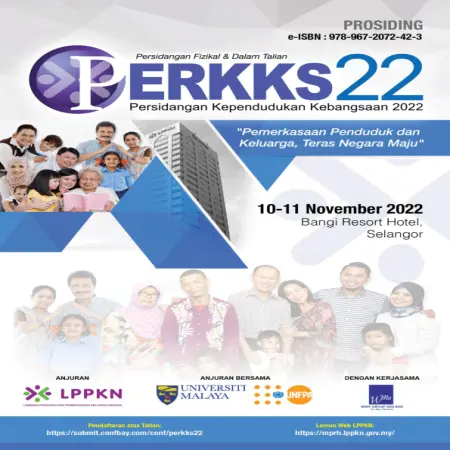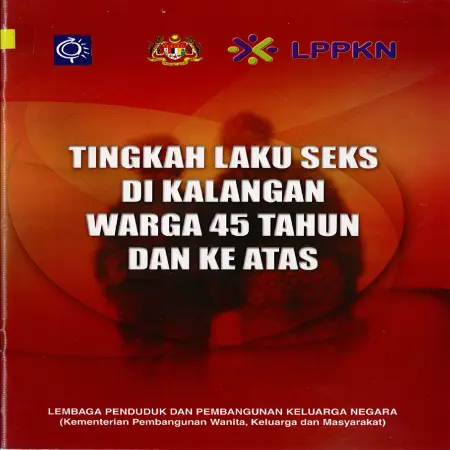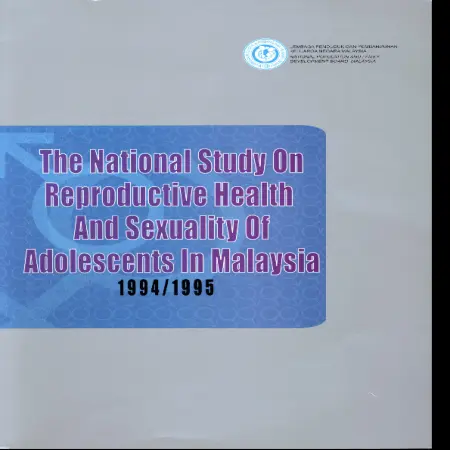TOPICS
Results for Topics : "Reproductive Health"
|
|
The 57th Session of The Commission On Population And Development, United Nations New York, 29 April – 3 May 2024
Item Type: Country Statement
Editor:
Year: 00/05/2024
Abstract: Malaysia like many other countries is becoming an aging nation due to declining fertility and increasing life expectancy. As 10.7 per cent of its population aged above 60 in 2020, Malaysia is expected to reach aged nation status by 2030. In this regard, Malaysia has revised its National Policy for Older Persons to enhance the integration of the elderly into society and introduced measures to boost the number of geriatricians and aged care health professionals under the National Health Policy for Older Persons. Malaysia's commitment to adolescent healthcare is evident in the National Adolescent Health Plan of Action (2015-2020) and the revised National Policy and Plan of Action on Social and Reproductive Health Education (2022-2025). These initiatives emphasize sexual and reproductive health education rooted in religious and moral principles across different settings and age groups. The Government also provides comprehensive health care services which includes contraceptive and sexual and reproductive health services that are integrated into primary health-care facilities nationwide. Family planning services are also provided by the National Population and Family Development Board of the Ministry of Women, Family and Community Development, NGOs such as the Family Planning Associations as well as private practitioners.
|
|
|
|
|
|
The 56th Session of The Commission On Population And Development, United Nations New York, 10-14 April 2023
Item Type: Country Statement
Editor:
Year: 11/04/2023
Abstract: Education is a longstanding right enshrined in human rights and developmental instruments, including in the Plan of Action of the International Conference on Population and Development (ICPD). The ICPD Plan of Action also recognizes the key role of education in sustainable development, as well as the responsibilities of different stakeholders, particularly parents, in this regard. Investments in education systems are of utmost importance for population growth, as it empowers people to lead better, healthier and sustainable lives. For Malaysia, the education system serves as a fundamental component in our quest to be a developed nation, and in achieving the Sustainable Development Goals (SDGs). Strengthening of human capital through education is a priority to Malaysia, with the Government providing free education to citizens up to secondary level.
|
|
|
|
|
|
The association between knowledge on sexual and reproductive health and attitude towards pornography among youth in the technical and vocational training (TVET) centres in Malaysia
Item Type: Book Section
Editor:
Year: 00/00/2022
Abstract: With technology advancement and increase accessibilities to gadgets, pornography exposure has been seen rampant among youth. Multiple studies have proven the negative effects of pornography exposure especially pertaining to risky sexual behaviours. This study aims to determine differences of SRH knowledge and pornography attitudes among youth subsequently investigate association between level of SRH knowledge and pornography attitudes among youth in TVET Centres in Malaysia.
|
|
|
|
|
|
Tingkah laku seks di kalangan warga 45 tahun dan ke atas
Item Type: Research Report
Editor:
Year: 00/00/2006
Abstract: An opinion survey on 'Sexual Behavior Among Citizens 45 Years and Above' which was first conducted by the Human Reproduction Division (BRM) was conducted in the Klang Valley area from February to June 2003. The 'Convenience Sampling' sampling method was used where respondents who meet certain criteria fill in the questionnaire themselves. A total of 473 respondents consisting of 50.1% Malays, Indians (26.6%) and Chinese (23.3%) where men (53.5%) outnumber than women (46.5%). The majority of respondents comprised the age group of 50-59 years (41.25%). From the 220 female respondents, only 7.3% took hormone replacement therapy. The results of the study found that the importance and satisfaction of sex decreases with age where it is more pronounced among women than men. The frequency of sexual intercourse is performed in the range of 4-8 times a month (46.3%). Although only 16.7% of respondents had sex-related problems, 70.9% of them did not know the source of help and treatment for their problems. Among those who received treatment, 56.4% chose to seek modern treatment. 55.7% of respondents with sexual problems have at least one chronic disease. A total of 85.6% disagreed and looked for another partner as a way out of sex -related problems. Expectations for better sex in the future are still high at 69.1%. In conclusion, for middle-aged and above despite the declining importance of sexual intercourse, their right to access to knowledge and services related to sexual problems needs to be addressed immediately, especially by medical practitioners, especially the Human Reproduction Division and LPPKN in general. A systematic and ‘gender-sensitive’ approach can help overcome the problem of family institutional breakdown and problems related to incest.
|
|
|
|
|
|
The National Study on reproductive health and sexuality of adolescents in Malaysia 1994/1995
Item Type: Research Report
Editor:
Year: 00/00/1996
Abstract: The National Study on Reproductive Health and Sexuality of Adolescents in Malaysia was initiated with the aim of formulating a National Programme on Reproductive Health for Adolescents. The specific objectives of the study are:
i. to establish the status of the knowledge, attitude
and practice of adolescents with regard to sexual
and reproductive health,
ii. to identify the constraints that adolescents face in
seeking information and service relating to sexual
and reproductive health,
iii. to obtain the participation of adolescents in the
design and implementation of programmes and
activities for their own welfare.
The single most expected outcome of the Study on Reproductive Health and Sexuality of Adolescents in Malaysia is a Cabinet memorandum which will propose appropriate policy and programme changes for the promotion and maintenance of optimal reproductive health among Malaysian adolescents geared towards the year 2020. This Memorandum will serve as a vital national reference and benchmark for evaluating future trends and patterns. It will be the basis for the reorientation of values, attitudes and approaches for the management of sexuality and reproductive health of adolescents in the country.
|
|
|
|









